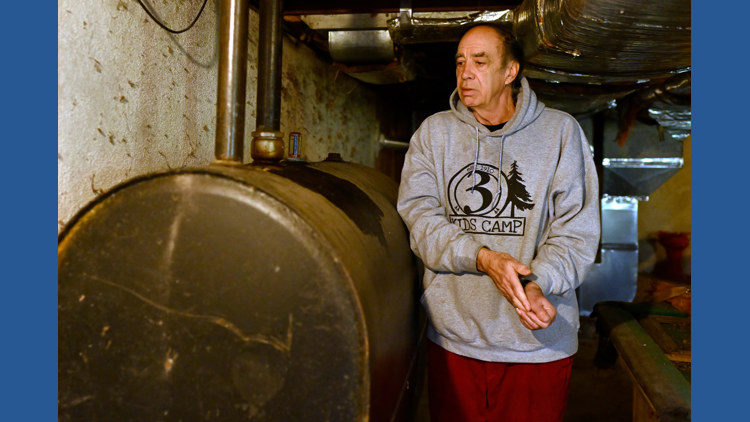URGENT UPDATE: A federal government shutdown now entering its fifth week threatens to delay crucial heating aid for millions of low-income families as winter approaches. With temperatures dropping across the United States, officials warn that funding for the $4.1 billion Low-Income Home Energy Assistance Program (LIHEAP) could be significantly affected.
Jacqueline Chapman, a 74-year-old retired school aide from Philadelphia, expresses her anxiety about the situation: “I feel like I’m living in scary times. It’s not easy to rest when you know you have things to do with limited accounts, limited funds.” Chapman relies on LIHEAP to help cover her heating costs, and she is not alone; approximately 5.9 million households benefit from this vital program.
The impending delays come as families also face cuts to the Supplemental Nutrition Assistance Program (SNAP), which supports roughly 1 in 8 Americans with their grocery bills. Mark Wolfe, executive director of the National Energy Assistance Directors Association, stated, “The impact, even if it’s temporary, on many of the nation’s poor families is going to be profound if we don’t solve this problem.”
States are scrambling to manage the situation. Reports indicate that states like Pennsylvania, Kansas, New York, and Minnesota are already announcing delays in their LIHEAP programs. Pennsylvania Governor Josh Shapiro confirmed that his administration cannot advance the anticipated $200 million in federal aid, meaning payments to around 300,000 low-income households may not go out until at least December.
Minnesota’s energy assistance program is processing applications but warns that federal LIHEAP funds could be delayed by a month, with heating payments on hold until the shutdown ends. “As temperatures begin to drop, this delay could have serious impacts,” the state’s Department of Commerce said.
In Connecticut, officials believe they have enough funds to cover heating bills through at least the end of November. However, uncertainty looms if the shutdown continues. State lawmakers are considering using budget reserves to maintain the program. Rhonda Evans, executive director of the Connecticut Association for Community Action, warns, “The situation will get much more perilous for folks who do need those resources as we move later into the heating season.”
The LIHEAP program, established in 1981, is essential for families struggling with utility bills. It has historically received bipartisan support in Congress. However, with the current budget impasse, states have not received their new allocations, leaving many in the lurch as winter nears.
A spokesperson for the U.S. Department of Health and Human Services attributed the delays to congressional Democrats and assured that once the government reopens, they would act swiftly to administer annual awards. However, there is concern over how staffing changes may further complicate the disbursement of funds. Wolfe predicts potential delays could extend into January, complicating the approval process for state plans.
Families like Mark Bain’s, a 67-year-old resident of Bloomfield, Connecticut, are feeling the pressure. Bain, who relies on Social Security and a small annuity, has been approved for $500 in heating assistance but worries about the timing of when he can access those funds. “I remember the first winter before I knew about this program. I was desperate. I was on fumes,” Bain recalled.
With heating oil prices rising and many families facing uncertainty, the urgency for a resolution to the government shutdown is clear. As winter continues to loom, the potential impacts on vulnerable households across the nation could be severe.
Stay tuned for updates on this developing story as millions await critical assistance during this challenging time.







